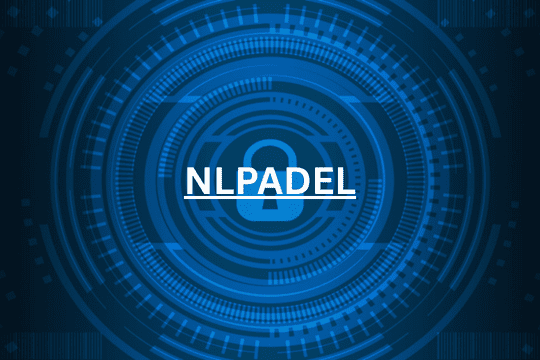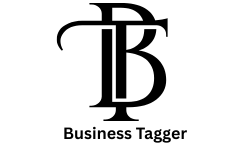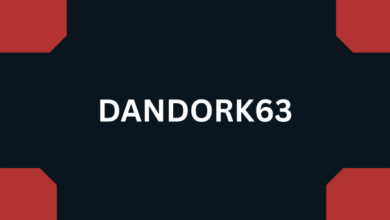NLPadel: The Dutch Powerhouse Fueling Padel’s New Era

Redefining traditions has become part of the global marketing strategy. Padel slithers between the two categories of racket games: somewhere between tennis and squash. This sport thrives in quick reflexes, camaraderie, and sound strategy. And in the Netherlands, this is one area where a brand ever so subtly but so relentlessly drives progress: NLPadel.
This is not only about city courts growing here and there or a fad with fitness buff clichés. NLPadel represents a cultural shift neatly organized, intensely strategic, and passionately inclusive. This paradigm shift will redefine how different sports are experienced and played in the Dutch setting. NLPadel shows local efforts can equally ride global waves with a community-first mindset backed by professional execution.
Table of contents
What Is Padel and Why Is It Such a Hit?
To understand the NLPadel boom, we have a first introduction to padel and its attraction to would-be players today, amateurs and professionals alike. Padel, which originated in Mexico and spread virally across Europe, is somewhere at the intersection of tennis and squash. It is staged inside a glass enclosed court, often played by pairs, and invites play requiring quick reflexes, strategic thinking, and socializing.
When compared to tennis, accessibility is much greater in padel. The rules are quite uncomplicated, while learning is moderately easy the sport can be said to be social by its temperament. For these reasons, padel becomes a sport connecting the generations and skill levels, which is exactly the reason for that boom, upholding fundamental values of the Netherlands inclusivity and innovation.
NLPadel: More Than a Sports Brand
We don’t see NLPadel only creating courts, building ecosystems instead. From the beginning, the brand has been about quality, accessibility, and developing standards. By building state-of-the-art facilities or through grassroots community leagues, NLPadel has a crystal clear goal to make padel a pillar in Dutch sporting culture.
What then does set it apart from its counterparts? Above and beyond, a holistic experience was created in NLPadel’s mindset. This means more than just a facility to play; it involves coaching programs, youth development, competitive leagues, and partnerships with local councils and health centers.
NLPadel’s founders grasped the fact that for padel to establish itself in the Netherlands, it must escape the clutches of imported recreation; it must be embraced, and transformed into distinctly Dutch identity.
Infrastructure Sustaining Growth
NLPadel is laying the infrastructure on which the future of the sport will stand. Quite a few Dutch cities suffer from space constraints; however, the courts-being modular and well-designed-will allow for synergy within the urban landscape and accommodate padel. Padel has already entered some of the affluent and less privileged with the underutilization of existing sports complexes through public-private partnerships.
Sustainable materials are a priority when building indoor and outdoor courts so that they meet the ecological standard while providing high-performance playing conditions throughout the year. They can also customize their portable court designs for special events, tournaments, and community gatherings, establishing NLPadel as a community center, not merely a service provider.
A Culture of Community
NLPadel is strongest in building a community. Walking into an NLPadel venue may mean random players from an elementary school kid mixing up with grandparents. Padel is far more of an open-source sport: affordable, accessible, and addictive-no elitist overtones here.
Club throws mixers, club nights, and fundraisers that acknowledge athleticism while acting as social venues. The importance of this human touch is intentional: relationships define the lifeblood of digital communities, and niche collectives like Sodziu thrive when centered around authentic interaction. NLPadel takes the same messaging into the physical realm.
Padel as a Business: NLPadel’s Strategic Growth
What began as a grass-roots effort is now perhaps one of the strongest business models in existence today. Using a multi-faceted approach including franchising, partnerships, and merchandise, NLPadel ensures the monetization of the padel sector. This, however, has not compromised our integrity or accessibility.
NLPadel rarely maintains this balance between scaling up and a personal touch. Every new venue has its own feel, its own soul. And behind that lies intelligent market research, feedback from the community, and a flexible system of quick-response ability for the brand to adjust in real-time to local demands or trends.
In a world where so many sporting franchises are focused on entrant exclusion and elite player development, NLPadel has inverted that model. It begins at grassroots, builds upwards, and allows talent to rise organically rather than keeping the door closed on the elite.
NLPadel for Youth Empowerment
Any sport’s present and future are its younger players, and NLPadel invests vigorously in this sphere. The brand is firmly anchoring padel into youth sports culture through its junior leagues, partnerships with schools, and free training days.
While traditional sports require money-outfitted equipment and club memberships, NLPadel pictures padel as less costly yet a high merit player. The program teaches coordination, strategy, and teamwork- all life skills that can help in all walks of life.
An array of the brand’s programs have centers around youth inclusivity in accessing sports. Programs delivered to undergrads or economically disadvantaged neighborhoods are dismantling barriers to break social inequities while providing unrestricted access to sport, thus resetting the equilibrium.
Innovation and Integration of Technology
Being Dutch means an affinity for innovation. NLPadel is now immersing itself with smart technology-adoption in its operations. From booking via app, tracking performances, deriving advice from AI-enabled coaching, NLPadel is ensuring that padel does not lag behind as technology penetrates other modern sports.
These digital tools augment the player experience and deliver useful statistics to the organization for service improvements. In a market where user experience often decides loyalty, NLPadel’s digital-forward approach brings in an extra dose of value.
The Dutch Identity in the Padel World
Perhaps one of the best things about NLPadel is how it carries the Dutch spirit into a global sport. The Netherlands has consistently been a country that stands for design, efficiency and egalitarianism. All of these ideals are to be found within NLPadel by making padel available, nice looking and equitable in nature.
In a way, therefore, the brand has localized a worldwide phenomenon. Padel would not have been born in the Netherlands, but under the aegis of NLPadel, surely the sport found its home here.
Several of the brand’s initiatives focus on inclusivity in youth participation. For instance, programs targeted at underrepresented or economically disadvantaged communities are breaking down social barriers and providing equal access to sport. This emphasis on shaping not just skill but character aligns with the broader idea that actions define who we are an ethos reflected in the concept of Gärningen, where intent and impact go hand in hand in shaping personal and social identity.
Conclusions
It is more than an enterprise involved in sports, for NLpadel is a movement in itself. The brand favors a community-first economic approach, an excellent business model, and accessibility that defines how sports will look like in the Netherlands of the twenty-first century.
As padel continues to grow in interest, so does the role of NLPadel. Whether one is an elite player, a curious beginner, or someone simply interested in seeking new ways to connect with community, there is something attractive to gain through involvement with the organization.
The court is glass, but the vision behind NLPadel is far from being transparent-it is crystal clear.
FAQs
What exactly is padel, and how is it different from tennis?
Padel is a racket sport that blends elements of tennis and squash. It’s usually played in doubles on a smaller, enclosed court, which makes the game faster-paced and more social than traditional tennis.
Why is padel becoming so popular in the Netherlands?
Padel is gaining popularity because it’s easy to learn, doesn’t require a steep physical learning curve, and has a strong social aspect. NLPadel has amplified this growth by building accessible and modern facilities across the country.
Is NLPadel only for experienced players?
Not at all. NLPadel welcomes players of all levels, including complete beginners. They offer coaching sessions, beginner classes, and social events that cater to everyone.
Can I book a court or join a league through NLPadel?
Yes, most NLPadel locations offer easy online booking through their website or app. You can also sign up for leagues, social mixers, or training programs.
How is NLPadel contributing to local communities?
NLPadel partners with schools, city councils, and nonprofits to make padel accessible to a wide range of people. Their initiatives often focus on youth engagement, wellness, and social inclusion.
Are there opportunities to franchise or invest in NLPadel?
As the sport grows, NLPadel is expanding through a scalable franchise model. If you’re interested in investment or franchise opportunities. It’s worth reaching out directly through their business development channels.





